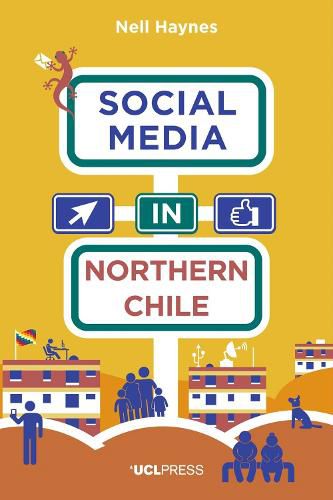Readings Newsletter
Become a Readings Member to make your shopping experience even easier.
Sign in or sign up for free!
You’re not far away from qualifying for FREE standard shipping within Australia
You’ve qualified for FREE standard shipping within Australia
The cart is loading…






Based on 15 months of ethnographic research in the city of Alto Hospicio in northern Chile, this book describes how the residents use social media, and the consequences of this use in their daily lives. Nell Haynes argues that social media is a place where Alto Hospicio’s residents - or Hospicenos - express their feelings of marginalisation that result from living in city far from the national capital, and with a notoriously low quality of life compared to other urban areas in Chile. In actively distancing themselves from residents in cities such as Santiago, Hospicenos identify as marginalised citizens, and express a new kind of social norm. Yet Haynes finds that by contrasting their own lived experiences with those of people in metropolitan areas, Hospicenos are strengthening their own sense of community and the sense of normativity that shapes their daily lives. This exciting conclusion is illustrated by the range of social media posts about personal relationships, politics and national citizenship, particularly on Facebook.
$9.00 standard shipping within Australia
FREE standard shipping within Australia for orders over $100.00
Express & International shipping calculated at checkout
Based on 15 months of ethnographic research in the city of Alto Hospicio in northern Chile, this book describes how the residents use social media, and the consequences of this use in their daily lives. Nell Haynes argues that social media is a place where Alto Hospicio’s residents - or Hospicenos - express their feelings of marginalisation that result from living in city far from the national capital, and with a notoriously low quality of life compared to other urban areas in Chile. In actively distancing themselves from residents in cities such as Santiago, Hospicenos identify as marginalised citizens, and express a new kind of social norm. Yet Haynes finds that by contrasting their own lived experiences with those of people in metropolitan areas, Hospicenos are strengthening their own sense of community and the sense of normativity that shapes their daily lives. This exciting conclusion is illustrated by the range of social media posts about personal relationships, politics and national citizenship, particularly on Facebook.